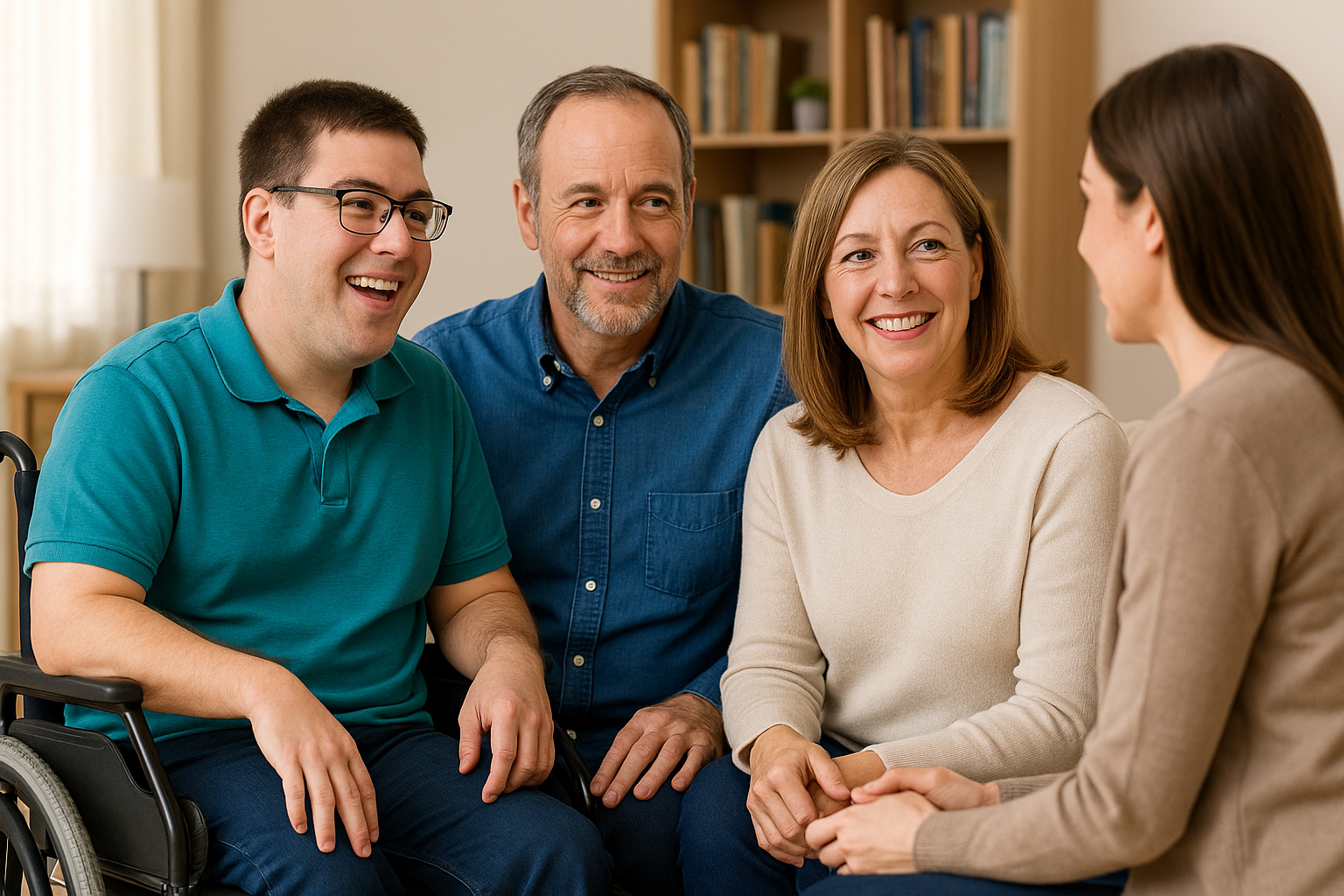Choosing the right care for an adult child or loved one with disabilities can feel overwhelming. You want them to be safe, supported, respected—and most importantly, happy and fulfilled.
For many families in Utah, host home services provide a deeply personal and empowering option. Unlike group homes or institutions, host homes offer a family-style living environment where individuals with disabilities are matched with a nurturing caregiver in a private home. It’s more than care—it’s connection.
In this article, we’ll walk you through everything you need to know about Utah’s host home model and why it may be the right fit for your loved one.
What Are Host Home Services?
Host home services allow adults with intellectual and developmental disabilities to live in the private home of a certified provider—someone who becomes part of their everyday life, offering care, guidance, and a sense of family.
This model is designed to support the individual’s:
- Independence
- Daily living skills
- Emotional well-being
- Community engagement
The provider supports routines like meals, hygiene, transportation, and medication—all within the warmth of a home environment.
Why Host Homes Matter for Families in Utah
Through Utah’s Division of Services for People with Disabilities (DSPD), host homes are a cornerstone of the state’s commitment to person-centered, community-integrated care. Families often find peace of mind knowing their loved one is:
- Living in a safe and stable home.
- Supported by a provider trained and monitored through state-approved agencies.
- Encouraged to grow, socialize, and develop life skills at their own pace.
What Is a PCSP (Person-Centered Support Plan)?
Every individual placed in a host home works with a team (including family members!) to develop a PCSP—a Person-Centered Support Plan.
This plan outlines:
- The individual’s goals and preferences.
- Supports needed for daily living, medical care, and social activities.
- Specific strategies to foster independence and joy.
As a parent or guardian, you are part of that conversation. PCSPs ensure that your loved one’s care reflects not just their needs—but their hopes and dreams.
How Do We Access Host Home Services in Utah?
To be eligible, your loved one must:
- Have a qualifying intellectual or developmental disability.
- Apply through the DSPD waitlist or through a crisis/emergency need route.
- Be enrolled in a Medicaid waiver, such as the Community Supports Waiver.
Your assigned support coordinator will guide you through:
- Intake and eligibility
- Provider matching
- PCSP creation and funding logistics
For more information, visit the official DSPD site.
What Makes Host Homes Different from Group Homes?
| Feature | Host Home | Group Home |
|---|---|---|
| Living Environment | Private family home | Shared residence with multiple clients |
| Care Ratio | 1-on-1 or 1-on-2 | Often 1 staff per 3–5 residents |
| Personalization | Highly individualized | Program-based, less customized |
| Independence Focus | Strong emphasis on growth and autonomy | Varies by program |
Families often choose host homes when they want their loved one to receive more personalized care and feel like part of a family, not just a facility.
What About Oversight and Safety?
This is one of the biggest concerns for families—and rightly so.
Rest assured, all host home providers must:
- Pass extensive background checks
- Complete DSPD and agency training
- Participate in regular home inspections and check-ins
- Coordinate with the individual’s support team and family
Oversight doesn’t stop after placement. You’ll stay involved in review meetings, updates, and PCSP revisions.
A Real-Life Example: Alyssa’s Journey
Alyssa, a 24-year-old with autism and epilepsy, was living at home with her parents in Salt Lake City. After researching their options and visiting a few group homes, her parents discovered a host home through a local agency.
Today, Alyssa lives with a caring provider who takes her to music therapy, helps her cook, and encourages her artistic talents. Her parents remain deeply involved—and finally have time to breathe, knowing she’s safe, loved, and flourishing.
Final Thoughts for Families
Choosing care for your adult child with disabilities is one of the most personal and emotional decisions you’ll ever make. But you’re not alone, and Utah’s host home system was built with family collaboration and individual dignity at its core.
If you’re ready to explore this path, talk to your support coordinator or contact an agency that offers host home placements in your area.
Call to Action
Looking for the right fit for your loved one in Utah?
Contact BrookeRidge Farms today to learn more about host home services, provider matching, and family-centered support.
Because every adult deserves a home—not just a place to live.


No responses yet